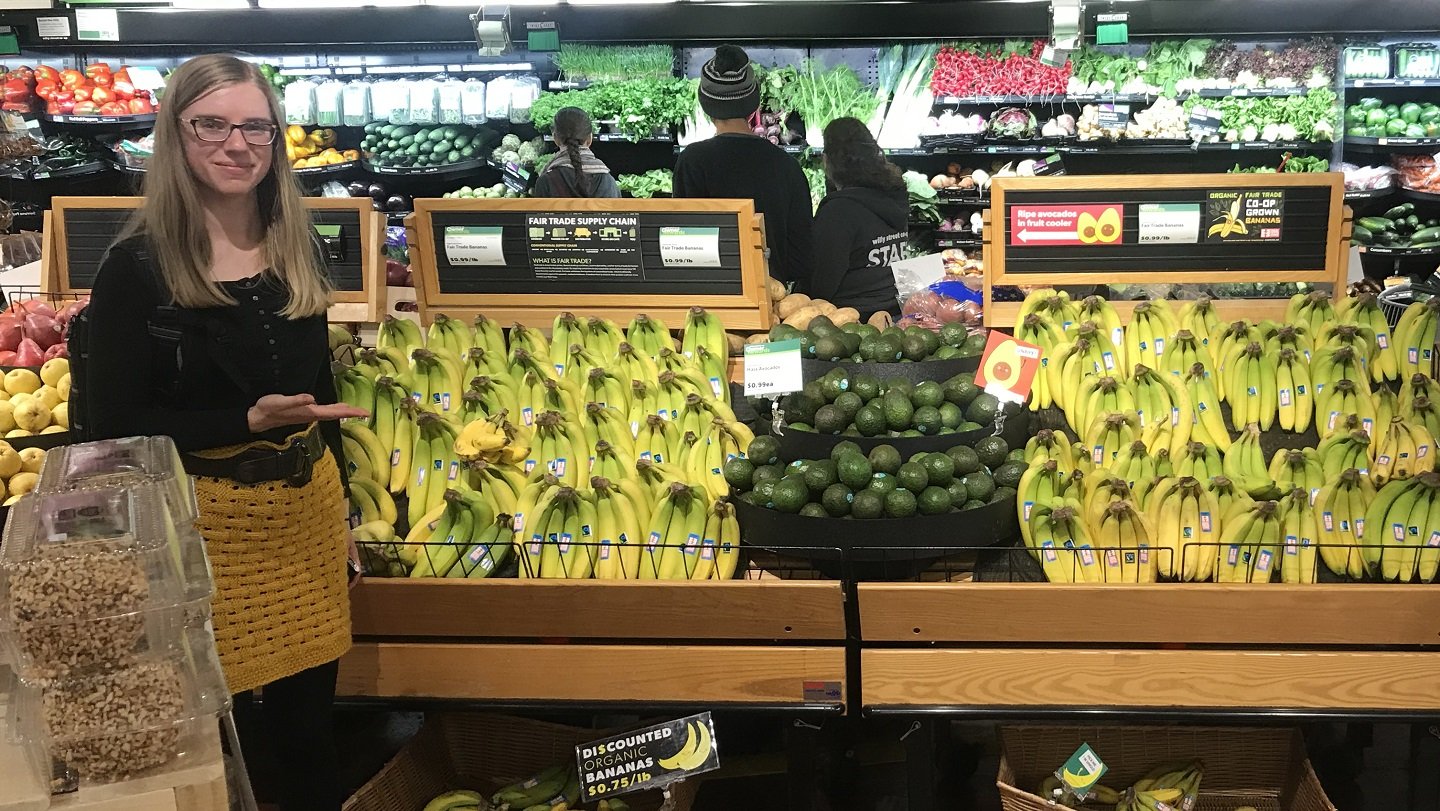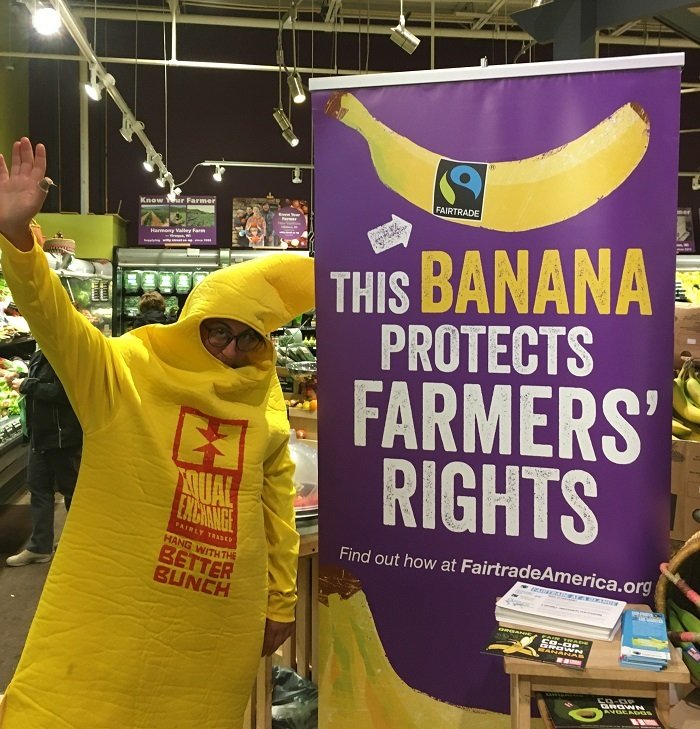Fighting TR4 at Your Grocery Store: A Consumer Action Guide
This is Part Three of a series from the Equal Exchange banana team, exploring the threat of Fusarium Wilt Tropical Race 4 to banana production and small-scale farmers in particular. In Part Two, we discussed the particular challenges small-scale farmers face as they employ TR4 prevention techniques. This week, we travel to your grocery store, and look at how you, the consumer, can contribute to the fight against TR4.
You might be wondering what YOU can do to help small-scale farmers confronted with TR4. Here are six actions to take.
Buy fair trade certified bananas
Purchasing bananas with the Fairtrade America stamp ensures that farmers received a fair price for their produce, and that an additional dollar per case went into a democratically managed fund, which producers put towards research, infrastructure, disease prevention, and education.
Support research institutions
Groups like Bioversity International and ProMusa have dedicated themselves to tracking, analyzing, and mitigating the effects of TR4. Supporting their work by reading and sharing their publications spreads awareness about the fungus and shows consumer prioritization of TR4 research efforts outside of sensationalist news coverage.
Look for inner beauty
With threats from both TR4 and changing weather patterns, bananas may not be as aesthetically consistent as they have been in the past. Quality may falter as producers work to stave off threats to their crops, and bananas that reach store shelves may have more blemishes and abnormal ripening patterns. By continuing to buy bananas, and appreciating that beauty is often only skin (or rather, peel) deep, you continue to support efforts to improve banana agriculture and the players across the supply chain working to bring them to your produce aisle.
Watch your step
The first fusarium outbreak is believed to have spread on the shoes of visitors to banana plantations. With a record number of travellers visiting tropical destinations, banana farms will be extremely vulnerable to fungal stowaways on the soles of your shoes. If you find yourself visiting a vegetable or fruit farm, do some homework beforehand to understand the risks to farmers and their produce, and scrub your shoes before and after to avoid the spread of disease.
Diversify your cart
If TR4 continues its spread, thousands of farmers will be affected, and their losses will ripple through the supply chain. At a grocery store level, this may jeopardize the reliability of the banana supply, which will fluctuate as farmers and shippers race to find solutions. Look for the country of origin on your banana labels, and do an online search to find other agricultural products from those countries. Some farmers may diversify their crops to protect themselves from total losses, selling supplemental products like cacao, avocados, or ginger. Support these products with your dollar, as well as other banana varieties that may start to appear on store shelves.
Mobilize
Join the Equal Exchange Citizen-Consumer network, which connects consumers to a group of passionate individuals seeking to make a change in the food system. This group organizes events and campaigns around key food issues, working to raise awareness and support of small farmers and agricultural rights at home and abroad. Your voice is just as powerful as your dollar.
References:
2019. Bananas and avocados. Fairtrade America. http://www.fairtradeamerica.org/Fairtrade-Products/Bananas-and-Fresh-Produce
N.d. Banana genetic resources and management systems. Bioversity International. https://www.bioversityinternational.org/research-portfolio/banana-genetic-resources-and-management-systems/?L=0
Vézina, Anne. 2020. Tropical Race 4 – TR4. ProMusa. An initiative of Bioversity International. http://www.promusa.org/Tropical+race+4+-+TR4#Efforts_to_address_the_threat_of_TR4



